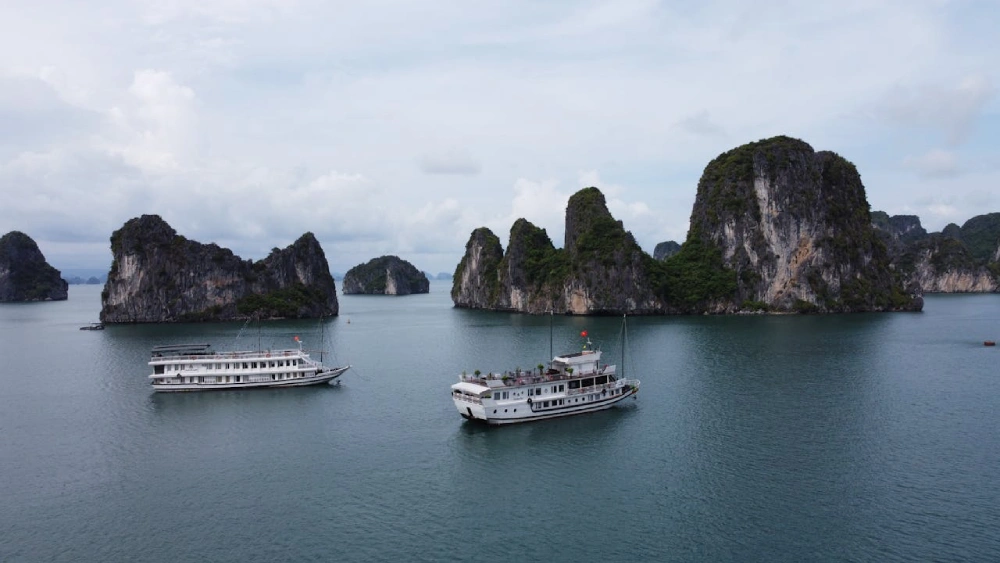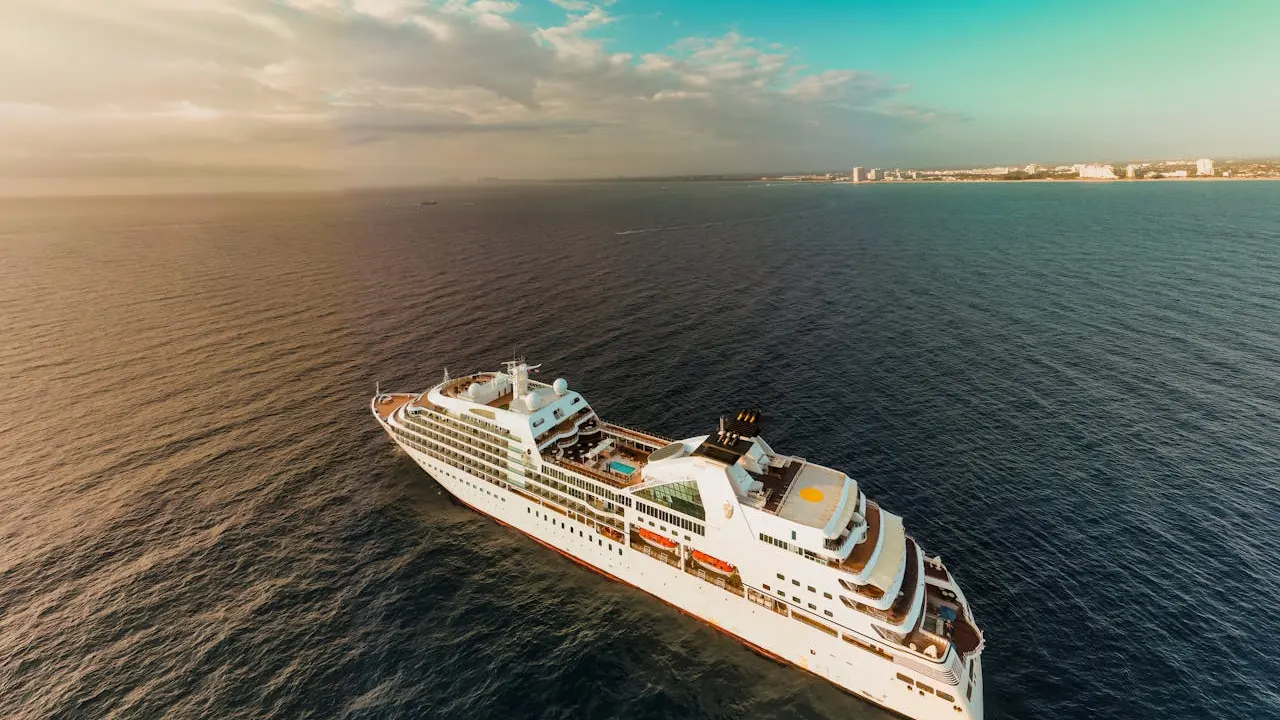Introduction
Taking a cruise is an exciting way to explore the world, but like any trip, it comes with its own set of risks and uncertainties. This is where cruise insurance coverage steps in. Cruise insurance is a specialized type of travel insurance designed to protect travelers against the unique risks associated with cruise vacations. From medical emergencies to trip cancellations, cruise insurance can offer peace of mind and financial protection. But what exactly does cruise insurance coverage include?
- Introduction
- Types of Cruise Insurance Coverage
- Trip Cancellation and Interruption
- Medical and Evacuation Coverage
- Baggage and Personal Belongings
- Travel Delay and Missed Connection
- Cruise-Specific Coverage
- Trip Cancellation and Interruption
- Medical and Evacuation Coverage
- Baggage and Personal Belongings
- Travel Delay and Missed Connection
- Causes of Travel Delays
- Compensation for Additional Expenses
- Steps to Take in Case of Missed Connections
- Cruise-Specific Coverage
- How to Choose the Right Cruise Insurance
- Common Exclusions in Cruise Insurance
- Cost of Cruise Insurance
- How to File a Claim
- Real-Life Stories and Case Studies
- Examples of Cruise Insurance in Action
- Lessons Learned from Uninsured Travelers
- Testimonials from Satisfied Customers
- Frequently Asked Questions
- Conclusion
- FAQs
Types of Cruise Insurance Coverage
Cruise insurance coverage can be comprehensive, encompassing a variety of protections to address different potential issues you might face during your voyage. Here are the primary types of coverage typically included:
Trip Cancellation and Interruption
One of the most critical components of cruise insurance is coverage for trip cancellation and interruption. This protection can reimburse you for non-refundable expenses if you have to cancel or cut short your trip due to unforeseen circumstances such as illness, injury, or severe weather conditions.
Medical and Evacuation Coverage
Healthcare at sea can be costly. Cruise insurance Coverage often includes medical coverage for onboard emergencies and sometimes even pre-existing conditions, depending on the policy. Additionally, evacuation coverage can cover the costs of emergency transportation to the nearest hospital or back home if necessary.
Baggage and Personal Belongings
Losing your luggage can be a nightmare. Cruise insurance typically offers protection for lost, stolen, or damaged baggage and personal items, ensuring you are compensated for your loss.
Travel Delay and Missed Connection
If your flight is delayed or you miss a connection, cruise insurance can help cover additional expenses such as accommodation and meals. This coverage ensures you won’t be out-of-pocket due to unforeseen travel disruptions.
Cruise-Specific Coverage
Some policies include unique protections specific to cruises, like coverage for missed shore excursions, itinerary changes, or even cruise line bankruptcy.

Trip Cancellation and Interruption
Imagine preparing for a dream cruise only to fall ill a few days before departure. Trip cancellation coverage can reimburse you for prepaid, non-refundable expenses such as cruise fare, flights, and hotel bookings. Similarly, if an emergency forces you to cut your trip short, trip interruption coverage can cover the costs associated with returning home early.
Reasons for Cancellation
Policies typically cover a range of cancellation reasons, including personal illness, family emergencies, severe weather, and more. It’s essential to read the fine print to understand what is and isn’t covered.
Reimbursement Policies
Most policies will reimburse 100% of the covered expenses, but some might offer a percentage based on the circumstances and timing of the cancellation.
Examples and Scenarios
Consider a scenario where a hurricane is forecasted to hit your departure port, forcing the cruise line to cancel the trip. With trip cancellation coverage, you’d be reimbursed for your prepaid expenses.
Medical and Evacuation Coverage
Medical emergencies can be particularly stressful when you’re miles away from home. Cruise insurance can help mitigate these concerns by providing coverage for medical expenses and evacuation.
Onboard Medical Emergencies
Onboard medical facilities can handle minor issues, but serious conditions may require evacuation. Medical coverage ensures you aren’t left with hefty medical bills.
Coverage for Pre-existing Conditions
Some policies offer coverage for pre-existing conditions if the policy is purchased within a specific timeframe. Always check the policy details if you have a pre-existing condition.
Evacuation Procedures and Costs
Emergency evacuations can be costly, running into tens of thousands of dollars. Cruise insurance covers these expenses, ensuring you receive the necessary medical attention without the financial burden.

Baggage and Personal Belongings
Your luggage and personal belongings are essential for a comfortable trip. Unfortunately, things can go wrong, and you might find yourself without your belongings.
Lost, Stolen, or Damaged Luggage
Cruise insurance covers the loss, theft, or damage of your luggage, reimbursing you for the value of the items. Be sure to report any loss or damage immediately to facilitate the claims process.
High-Value Item Protection
For high-value items such as jewelry or electronics, it’s crucial to check if additional coverage is needed. Some policies have limits on the maximum amount reimbursed for such items.
Claim Process and Documentation
Filing a claim for lost or damaged items requires proper documentation, including a police report (in case of theft) and receipts for the items. Keep all relevant documents handy to ensure a smooth claims process.
Travel Delay and Missed Connection
Delays are an unfortunate reality of travel. Whether it’s a delayed flight or a missed connection, these disruptions can cause significant inconvenience and additional expenses.
Causes of Travel Delays
Travel delays can result from various factors, including weather conditions, mechanical issues, or strikes. Cruise insurance provides coverage for expenses incurred due to such delays.
Compensation for Additional Expenses
Expenses for meals, accommodations, and transportation during delays are typically covered. Always keep receipts and records of additional costs incurred.
Steps to Take in Case of Missed Connections
In case of a missed connection, contact your insurance provider immediately. They can guide you on the steps to take and help with arrangements and reimbursements.

Cruise-Specific Coverage
Cruise insurance often includes unique protections tailored to the specific needs of cruise travelers.
Shore Excursion Protection
Missed or canceled shore excursions can be disappointing. Some policies provide reimbursement for pre-paid excursions if the cruise line cancels or if you’re unable to attend due to covered reasons.
Itinerary Changes and Port Cancellations
Unexpected itinerary changes or port cancellations can affect your plans. Cruise insurance can cover additional expenses or provide compensation for missed experiences.
Cruise Line Bankruptcy
In the unlikely event of a cruise line bankruptcy, insurance can protect you from financial loss, ensuring you’re reimbursed for any non-refundable expenses.
How to Choose the Right Cruise Insurance
Choosing the right cruise insurance involves assessing your specific needs and comparing different policies.
Assessing Your Needs
Consider factors such as your health, the value of your trip, and potential risks. Assessing these aspects can help you determine the necessary coverage.
Comparing Policies
Compare policies from different providers to find one that offers comprehensive coverage at a reasonable price. Look for policies that offer the best value rather than the cheapest option.
Reading the Fine Print
Understanding the terms and conditions of your policy is crucial. Read the fine print to know what is covered and what isn’t, and ensure there are no surprises when you need to file a claim.

Common Exclusions in Cruise Insurance
Like any insurance, cruise insurance has exclusions that you should be aware of.
Pre-existing Conditions
Not all policies cover pre-existing medical conditions. Check if your policy includes this coverage and any conditions that apply.
High-Risk Activities
Activities such as scuba diving or parasailing may not be covered. If you plan to participate in such activities, look for policies that include coverage for high-risk activities.
Policy Limits and Caps
Policies often have limits on the maximum amount reimbursed for certain expenses. Be aware of these limits and ensure they meet your needs.
Cost of Cruise Insurance
The cost of cruise insurance varies based on several factors.
Factors Affecting Cost
Age, trip cost, and the level of coverage all influence the cost of insurance. Older travelers and more expensive trips typically result in higher premiums.
Average Cost Estimates
On average, cruise insurance can cost between 4% to 10% of the total trip cost. This range varies based on individual circumstances and coverage options.
Ways to Save on Cruise Insurance
Purchasing insurance early, opting for an annual policy if you travel frequently, and comparing providers can help you save on costs.

How to File a Claim
Filing a claim can be straightforward if you follow the correct procedures.
Step-by-Step Guide
- Contact your insurance provider immediately after an incident.
- Gather all necessary documentation, including receipts and reports.
- Submit the claim form and documentation as per the provider’s guidelines.
Necessary Documentation
Documentation may include medical reports, police reports, receipts for expenses, and proof of trip costs. Ensure you have everything needed to support your claim.
Tips for a Smooth Claim Process
Keep detailed records of your interactions with the insurance provider and submit all required documents promptly. Follow up regularly to check the status of your claim.
Real-Life Stories and Case Studies
Learning from real-life experiences can highlight the importance of cruise insurance.
Examples of Cruise Insurance in Action
Consider stories of travelers who faced medical emergencies or trip cancellations and how insurance helped them.
Lessons Learned from Uninsured Travelers
Stories of travelers without insurance facing significant financial and logistical challenges can underscore the importance of coverage.
Testimonials from Satisfied Customers
Positive experiences from travelers who benefited from cruise insurance can provide peace of mind and reinforce the value of coverage.
Frequently Asked Questions
Addressing common concerns and queries can help travelers understand cruise insurance better.
Common Concerns and Queries
Questions about coverage specifics, costs, and the claims process are typical. Providing clear answers can help potential policyholders make informed decisions.
Expert Answers and Advice
Offering expert insights and tips can enhance understanding and confidence in choosing the right insurance.
Quick Reference Guide
A concise summary of key points and answers to frequent questions can serve as a handy reference for travelers.

Conclusion
Cruise insurance is an essential consideration for any cruise traveler. It offers protection and peace of mind against a range of potential issues, from trip cancellations to medical emergencies. By understanding the coverage options and choosing the right policy, you can ensure a worry-free and enjoyable cruise experience.
FAQs
What happens if my cruise is canceled due to a natural disaster? If your cruise is canceled due to a natural disaster, trip cancellation coverage can reimburse you for non-refundable expenses.
Does cruise insurance cover missed shore excursions? Yes, some policies include coverage for missed or canceled shore excursions, providing reimbursement for pre-paid activities.
Can I get cruise insurance if I have a pre-existing condition? Many policies offer coverage for pre-existing conditions if purchased within a specific timeframe. Always check the policy details.
What is the difference between primary and secondary coverage? Primary coverage pays out before any other insurance you might have, while secondary coverage kicks in after your primary insurance has paid.
How far in advance should I purchase cruise insurance? It’s best to purchase cruise insurance as soon as you book your trip to ensure coverage for any unforeseen events that may arise before departure.


